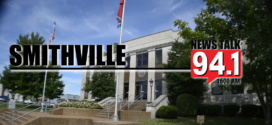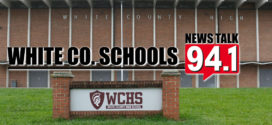Crossville City Council discussing options to ensure the city’s water and sewer utilities stay profitable in the coming years.
MTAS Finance and Accounting Consultant Brad Harris said the city council has two possible solutions. Harris said they can either reduce the minimum utility bill from 2,000 gallons to 1,500 gallons. The other option, implement an annual rate increase around 3.5 percent, which Harris said was the better option.
“Now, nobody likes to hear that, and y’all already talked about tax increases and such tonight, and I get it, but, but it might be better to do a systematic annual small amount then it would come up seven years and all of a sudden have to all of a sudden do a twenty or thirty percent increase,” Harris said. “You don’t want to have to do that, ok?”
Harris said public utilities are required to be financially self-supporting by the state. He said Crossville’s utilities are projected to start losing money by 2027. He said the biggest issue for the city is the large number of new capital asset additions, as they will each increase depreciation expenses after they are completed.
“Your depreciation expense is going to go up, $200,000, $300,000, $400,000 or more in the next five, six, seven years,” Harris said. “That’s a challenge because it’s difficult to know where to drop those years in, of completion. Because you don’t depreciate something until it’s getting used for it’s intended purpose, so just because you’re building it now, you may not be depreciating it for two years.”
Harris said public utilities that fail to meet the state’s financial requirements are forced to change their procedures by the Tennessee Board of Utility Regulation.
“They look at everything,” Harris said. “You don’t want to be under the review of the state, ok?”
Harris said the revenue from water and sewer utilities in the city is growing about 2.5 percent annually. He said expenses are much more difficult to predict, but said a 3 percent growth rate is a conservative estimate, meaning expenses would eventually outpace revenue if nothing changes.
Harris said data used is from a water and sewer utility study the city commissioned from MTAS last November.
 News Talk 94.1/AM 1600 Where The Upper Cumberland Talks
News Talk 94.1/AM 1600 Where The Upper Cumberland Talks







